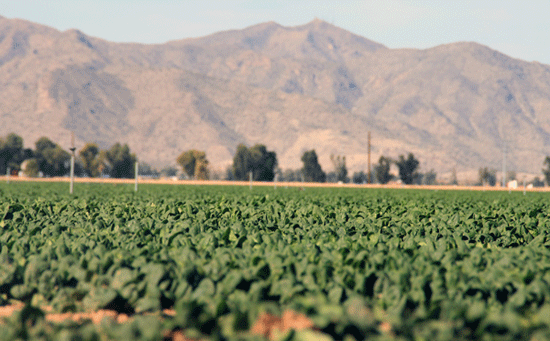
How could organic stuff not be better? Eschewing pesticides and fertilizers is better for consumers, farmers, the environment, and all the denizens of the ecosystems that comprise it—everyone knows that. Even ask Prince Charles.
Yet, like many ideas that seem to be straightforward, this one turns out to be somewhat complex. If organic agriculture has lower yields, it will require more land to generate the same amount of calories as conventional farms. It will thus cause more deforestation and the loss of biodiversity that accompanies it—hardly environmental boons. To find out how things balance out, researchers at McGill and the Institute on the Environment at the University of Minnesota have performed a meta-analysis comparing the yields of organic and conventional farming. Their results are published in Nature.
As with any meta-analysis, they needed to make sure they were comparing apples to apples. Previous studies that compared yields had some problems. They did not necessarily use fully organic farms; or the organic and conventional farms they compared were not really comparable on spatial or temporal scales; or they didn’t report on sample sizes or errors. After adjusting for differences, they ended up compiling the results from 66 studies covering 34 different crops at 62 study sites.
In determining whether organic farming can match the yields of conventional farming, they concluded that it depends. Yields of organic fruits and oilseeds were lower than their conventionally raised counterparts, although not to the degree of statistical significance. Organic cereals and vegetables, however, had 26 percent and 35 percent lower yields than conventional crops. Organic legumes and perennials fared better than other types of plants, but their sample sizes were small and thus there was a large uncertainty range in their yields.
In contrast to conventional farms, when organic farms get more nitrogen, they do better. This tells us that organic yields are limited by the amount of nitrogen they receive—they are not inundated with excess nitrogen in their fertilizers like conventional farms are. Organic farms also often do not get enough phosphorous. Perhaps new methods of getting sufficient amounts of these elements into organic soil could help improve organic yields.
The good news is that organic farms tend to do better under variable moisture conditions (like rain) than conventional farms do, although the fact that they are limited in nutrients could explain why they are not as responsive to irrigation as conventional farms are. And the longer a farm has been certified organic, the better its yield. It takes a good two to three years to improve the fertility of the soil and the management skills of the farmers.
Most of the studies in this meta-analysis were conducted in the developed world, where organic yields are higher than in developing countries. But the Swiss Research Institute of Organic Agriculture is undertaking a long-term comparison of organic and conventional systems in the tropics to sort out the situation there. Those countries are especially sensitive to the question of whether the environmental benefits of organic farming are enough to justify the costs of lower yields: increased food prices and reduced food exports.
The authors conclude by noting that achieving sustainable food security—producing enough food to feed the planet affordably, ensuring farmers a fair wage, and mitigating the environmental consequences inherent in agriculture—will probably require a combination of organic and conventional systems. Their work is valuable because it shows how we can reap the most benefit from organic agriculture by highlighting the crops and conditions for which it makes sense, as well as those for which the decrease in yield is too great to be tenable.
Nature, 2012. DOI: 10.1038/nature11069 (About DOIs).
Listing image by Photograph by usda.gov
reader comments
151